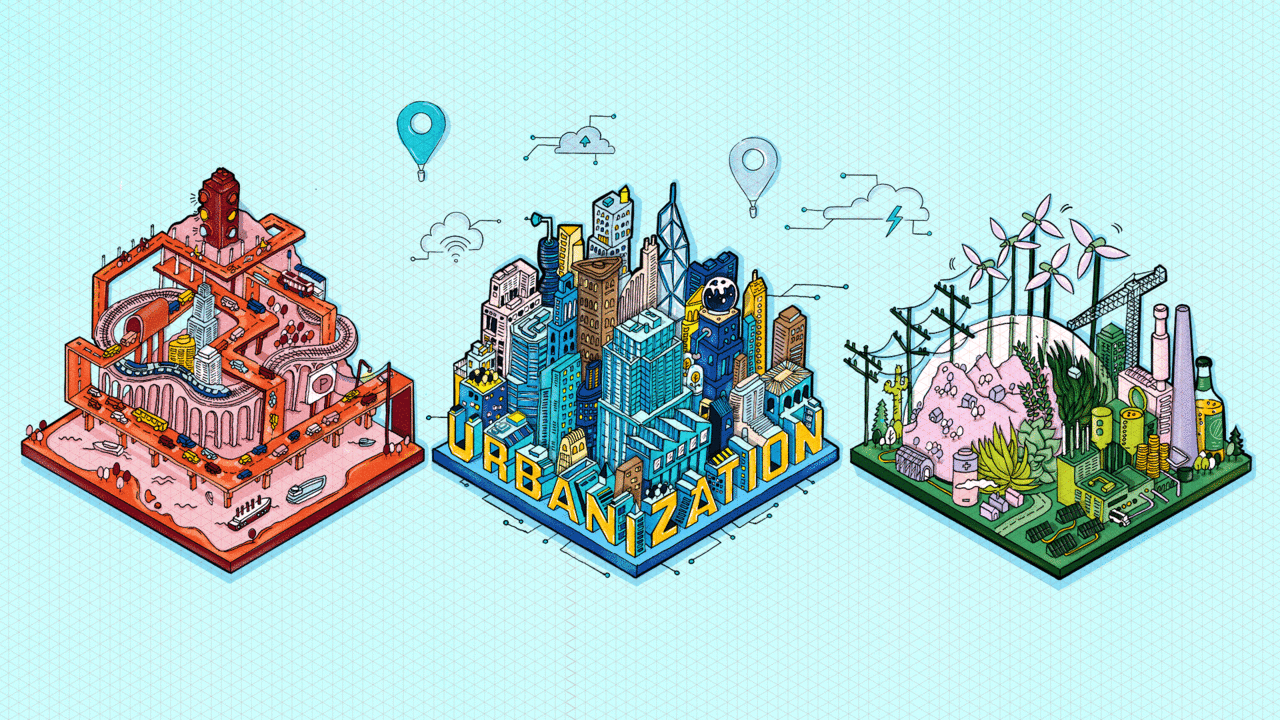
How will we face the next great disruption?
Urbanization is creating problems we’ve never before imagined. Find out how Waterloo alumni are rising to the challenge.

Urbanization is creating problems we’ve never before imagined. Find out how Waterloo alumni are rising to the challenge.
By Staff Office of AdvancementAs more of the world’s population migrates to cities, our global community is faced with complex questions: How can we make our streets smarter, and safer? How do we feed our growing urban centres? And are our cities making us sick?
The latest issue of Waterloo Magazine delves into these questions with alumni and researchers who are reimagining how we live. The print edition will hit mailboxes soon. Until then, check out the digital version for exclusive online extras like this interview with illustrator and alumnus Kathleen Fu.
From building smart homes to transforming the world’s biggest cities, Waterloo alumni offer expert insight into some of the definitive problems of our time. Discover their stories — and the steps you can take to shape our collective future — in the spring edition of Waterloo Magazine.

Read more
Here are the people and events behind some of this year’s most compelling Waterloo stories

Read more
Discover how Waterloo alumni are driving Canada’s economy with five tech companies making a local and global impact

Read more
Here are the people and events behind some of this year’s most compelling Waterloo stories
The University of Waterloo acknowledges that much of our work takes place on the traditional territory of the Neutral, Anishinaabeg, and Haudenosaunee peoples. Our main campus is situated on the Haldimand Tract, the land granted to the Six Nations that includes six miles on each side of the Grand River. Our active work toward reconciliation takes place across our campuses through research, learning, teaching, and community building, and is co-ordinated within the Office of Indigenous Relations.